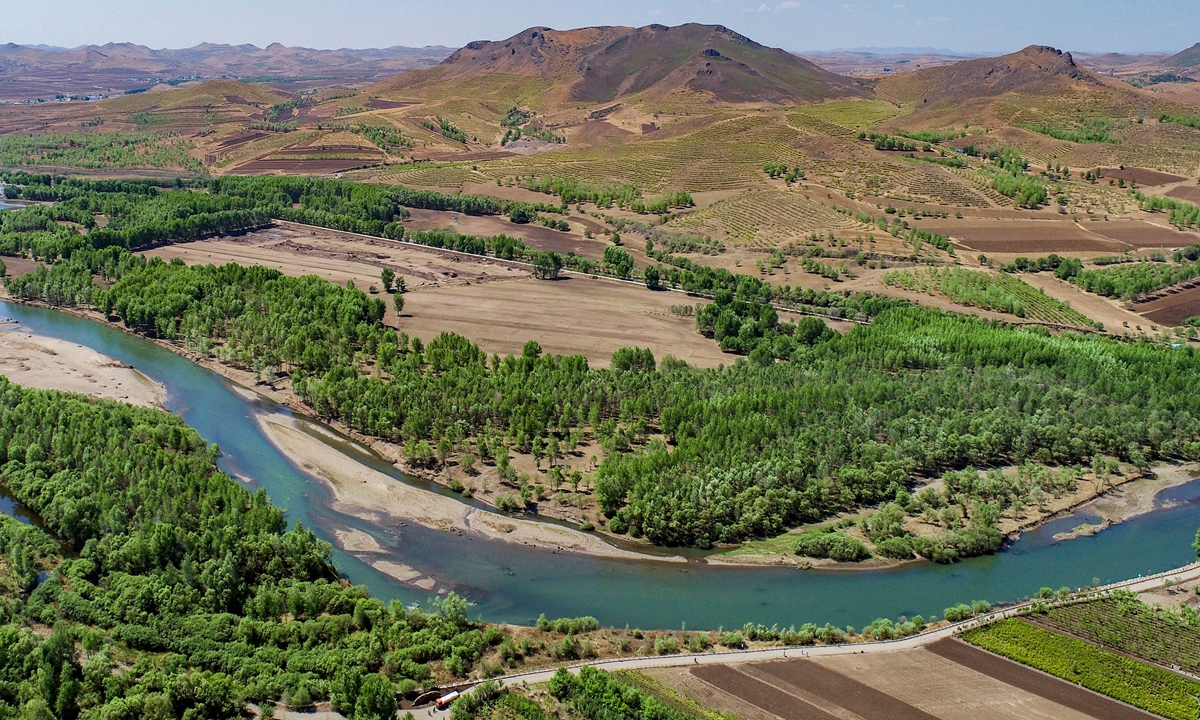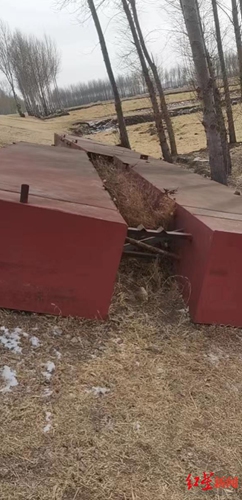Authority vows to build bridge by fall after controversy surrounding villager’s ‘illegal structure’ and prison sentence

An upperstream section of Tao'er River in North China's Inner Mongolia Autonomous Region Photo: cnsphoto
A villager in Northeast China's Jilin has filed an appeal over being sentenced to two years in prison with a two-year probation after he built a floating bridge and charged a toll to passing vehicles, the Baicheng Intermediate People's Court stated on Saturday.
The villager Huang Deyi, having been a ferryman for decades, in 2005 built a simple floating bridge and started to charge a toll. In 2014, Huang welded 13 boats together and placed wooden boards on top of them to create a 7.5-meter long, 1.5-meter wide floating bridge. Excluding flooding seasons and winter, Huang charged 5 yuan ($0.69) for cars and 10 yuan for larger vehicles for five to six months every year, Chengdu-based Red Star News reported.
In October 2018, the water affairs authority in Taonan (under Baicheng's administration) fined Huang for illegally building a bridge and making profit and ordered him to demolish the structure.

Part of the floating bridge that has been demolished Photo: Red Star News
Huang was detained by Taonan police in February 2019 along with several family members. The Taonan procuratorate sued Huang and others for "picking quarrels and provoking trouble" in July 2019, stating that from 2014-18, Huang charged passing vehicles a total of 44,000 yuan.
A local Taonan court issued the sentence on December 31, 2019, citing that Huang and others have collected a total of 52,950 yuan between 2005 and 2018. Others involved, including 17 of Huang's family members, were also sentenced varying periods with probations.
Huang filed an appeal to Taonan court but was rejected by the court. He filed an appeal again to the higher Baicheng Intermediate People's Court in June 2023 with the case currently under review.
After the case caught public attention, Taonan local authorities came under criticism with some questioning whether the punishment was too severe and why it was a villager who built the bridge. "There would be no room for Huang's family to make profit if there is a bridge," one net user commented on Sina Weibo.
Authorities of Taonan also vowed to build a floating bridge at Zhenlin village, where Huang's bridge was located, by this fall harvest season to facilitate better traffic connectivity. A more modern bridge over the Tao'er River is part of the Baicheng and Taonan 14th Five-Year Plan, which will be implemented within a scheduled timeframe.
Huang, in his first appeal in 2021, said he built the bridge to facilitate villagers who need to cross the river during spring plough and fall harvest. The "amount of profit" was inaccurate as he had spent 130,000 yuan alone for the steel boats and welding them, not to mention other construction costs.
Some legal experts are divided on whether it is appropriate to apply "picking quarrels and provoking trouble" from the Criminal Law in this case.
Luo Xiang, a renowned law professor, wrote in an article that no revealed evidence has suggested Huang had forced fellow villagers to pay for the toll and therefore the charges should not apply.
The illegal construction of a bridge does violate the Water Law and the perpetrator needs to either go through procedures or demolish the construction. Yet this law is limited to administrative punishment and does not result in a criminal penalty, according to Luo.
Some observers argued for more lenient ruling in a case where the accused had not shown malicious intention and the case has no profoundly negative social impact.
Red Star News - Global Times




